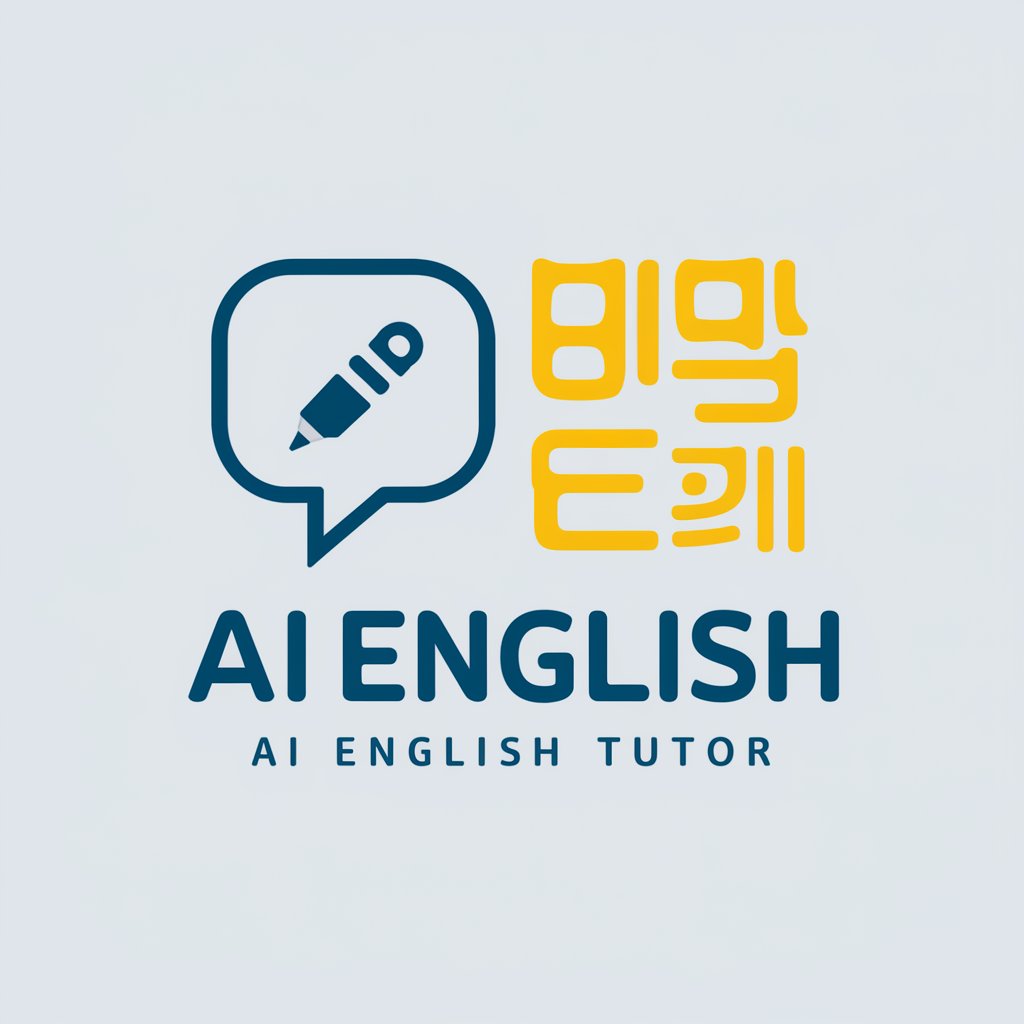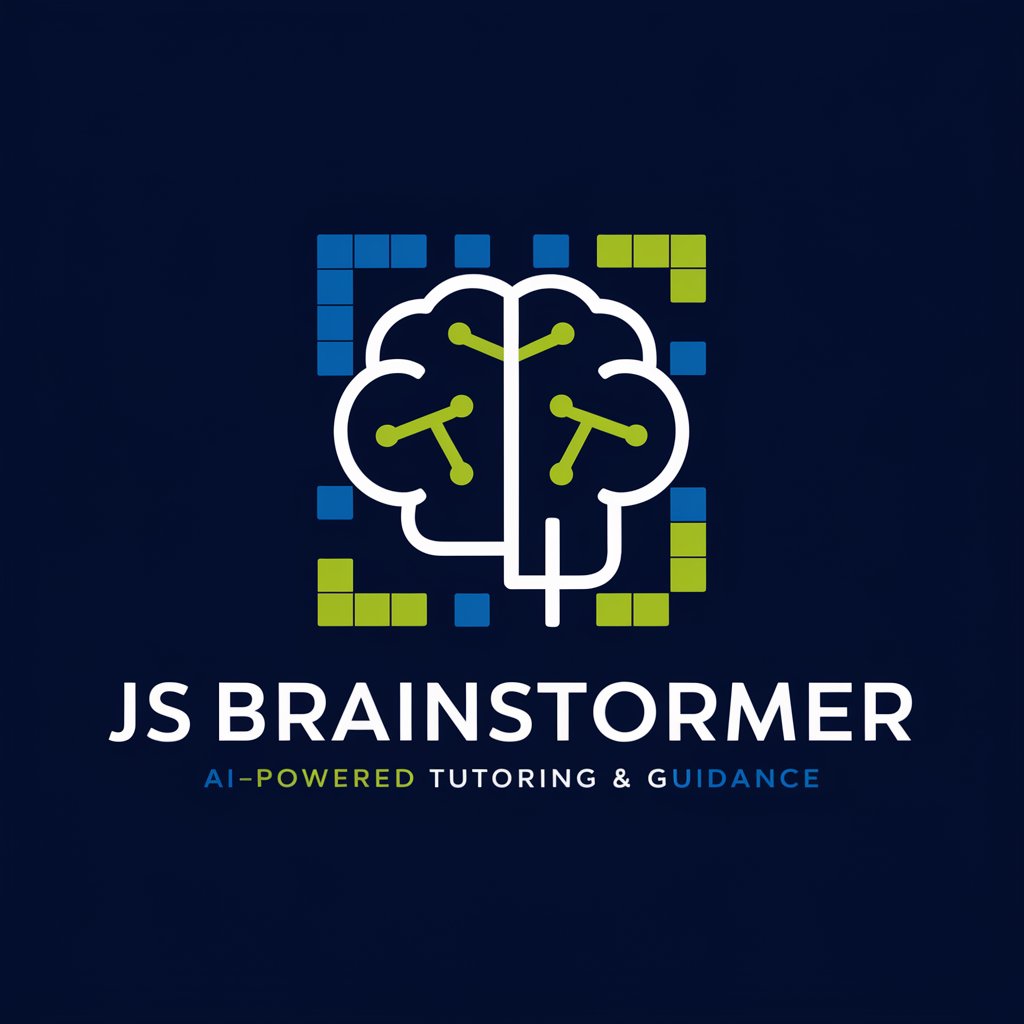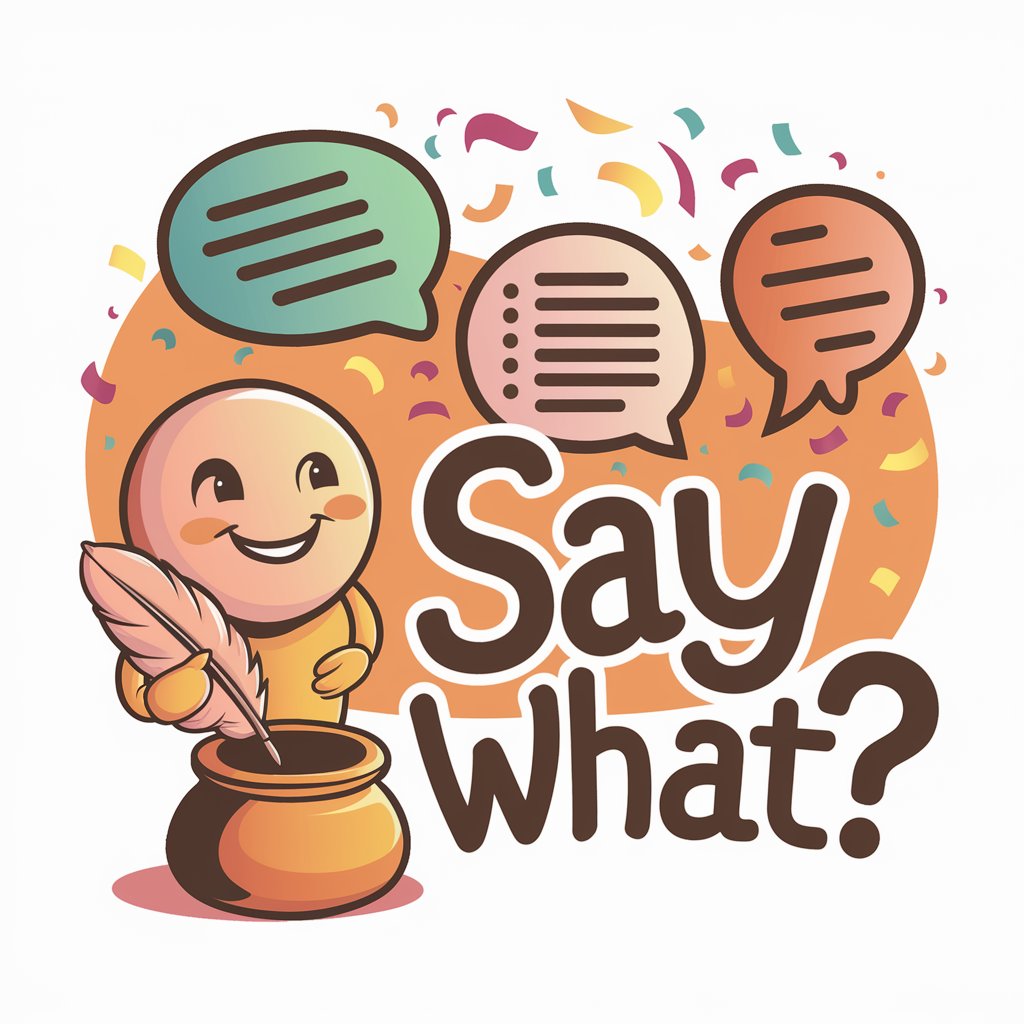English Tutor - English Learning Companion

Hello! I'm here to help you master English effectively and confidently.
Master English with AI-powered insights
Explain the difference between 'affect' and 'effect' in simple terms.
Translate this English sentence into Korean:
What are common mistakes Koreans make when using the present perfect tense?
Provide an example of how to use the phrasal verb 'look forward to' in a sentence.
Get Embed Code
Introduction to English Tutor
English Tutor is a specialized GPT model designed to bridge the language gap for Korean speakers learning English. With over a decade of experience teaching English to Koreans, this model is finely tuned to understand and address common challenges faced by Korean learners, such as grammar intricacies, colloquial expressions, and pronunciation hurdles. Unlike generic language learning tools, English Tutor offers personalized, detailed explanations in Korean, catering specifically to the linguistic nuances between English and Korean. For example, it can elucidate the difference in sentence structure, such as the subject-verb-object order in English versus the subject-object-verb order in Korean, and explain idiomatic expressions that may not have direct translations. Powered by ChatGPT-4o。

Main Functions of English Tutor
Grammar Clarification
Example
Explaining the usage of articles 'a', 'an', and 'the', which do not exist in Korean.
Scenario
When a learner writes 'I saw cat outside', English Tutor can correct the sentence to 'I saw a cat outside', explaining the necessity of the indefinite article in this context.
Idiomatic Expressions Explanation
Example
Clarifying expressions like 'break a leg' or 'piece of cake', which can be confusing due to their literal translations.
Scenario
A learner is puzzled by the phrase 'break a leg' being used to wish someone good luck. English Tutor explains the idiom's meaning and origin, making it easier to understand and remember.
Pronunciation Tips
Example
Guiding on the pronunciation differences between 'b' and 'p', which are often challenging for Korean speakers.
Scenario
A user struggles with the pronunciation of 'bat' and 'pat'. English Tutor provides phonetic explanations and practice sentences to help distinguish the sounds.
Ideal Users of English Tutor Services
Korean Students Learning English
Students at various levels of English proficiency can benefit from tailored explanations and corrections, helping them overcome language barriers more effectively.
Korean Professionals Working in English-Speaking Environments
Professionals seeking to improve their business English or adapt to an English-speaking work culture can receive targeted support for communication skills.
English Language Teachers in Korea
Teachers looking for resources to explain English grammar and usage to Korean students will find English Tutor a valuable aid for classroom instruction and material preparation.

How to Use English Tutor
1
Start with a visit to yeschat.ai for an initial trial, offering access without the need for login or a ChatGPT Plus subscription.
2
Choose the English Tutor option from the available services to begin enhancing your English learning journey.
3
Input your English sentences or questions directly into the chat interface to receive detailed explanations and corrections.
4
Utilize the feedback and suggestions provided by English Tutor to practice and improve your English skills.
5
Repeat the process with new sentences or questions to further your understanding and mastery of English.
Try other advanced and practical GPTs
Mom GPT
Your AI-powered nurturing guide.

Interior Designer
Empowering Your Design Vision with AI

Landscape Architecture
AI-powered landscape architecture expertise.

JS Brainstormer
Elevate your code with AI-driven insights

AI Hustle Helper
Empowering Your AI Hustle Journey

NEUTRINOGOLD Economic Calendar Analyst
AI-Powered Economic Insight at Your Fingertips

Say What?
Craft messages that resonate, powered by AI.

Actuarial Science
AI-powered actuarial insights for risk.

PromptR0b0T Deluxe
Elevate your creativity and research with AI.

Germain - Ascended Master of Enlightenment
Guiding your journey to inner peace.

Content Catalyst
Elevate Your Crypto Voice with AI

LINE 添削
Refine Your Messages with AI

Frequently Asked Questions about English Tutor
What is English Tutor?
English Tutor is an AI-powered tool designed to help Korean speakers learn and improve their English by providing detailed explanations and corrections for English sentences.
Who can benefit from using English Tutor?
Korean speakers of all English proficiency levels, from beginners to advanced learners, seeking to enhance their grammar, vocabulary, and understanding of colloquial expressions.
How does English Tutor address common difficulties faced by Koreans in learning English?
It provides explanations tailored to common Korean learners' mistakes, focusing on grammar, pronunciation, and idiomatic expressions, making it easier to understand and correct these errors.
Can English Tutor help with academic writing?
Yes, English Tutor offers guidance and corrections for academic writing, including essays, research papers, and reports, focusing on proper structure, style, and vocabulary.
Is there a limit to how often I can use English Tutor?
While the initial trial offers generous access, continuous use may require subscribing to a plan. However, there is no limit on the number of sentences or questions you can submit for review during the trial period.
